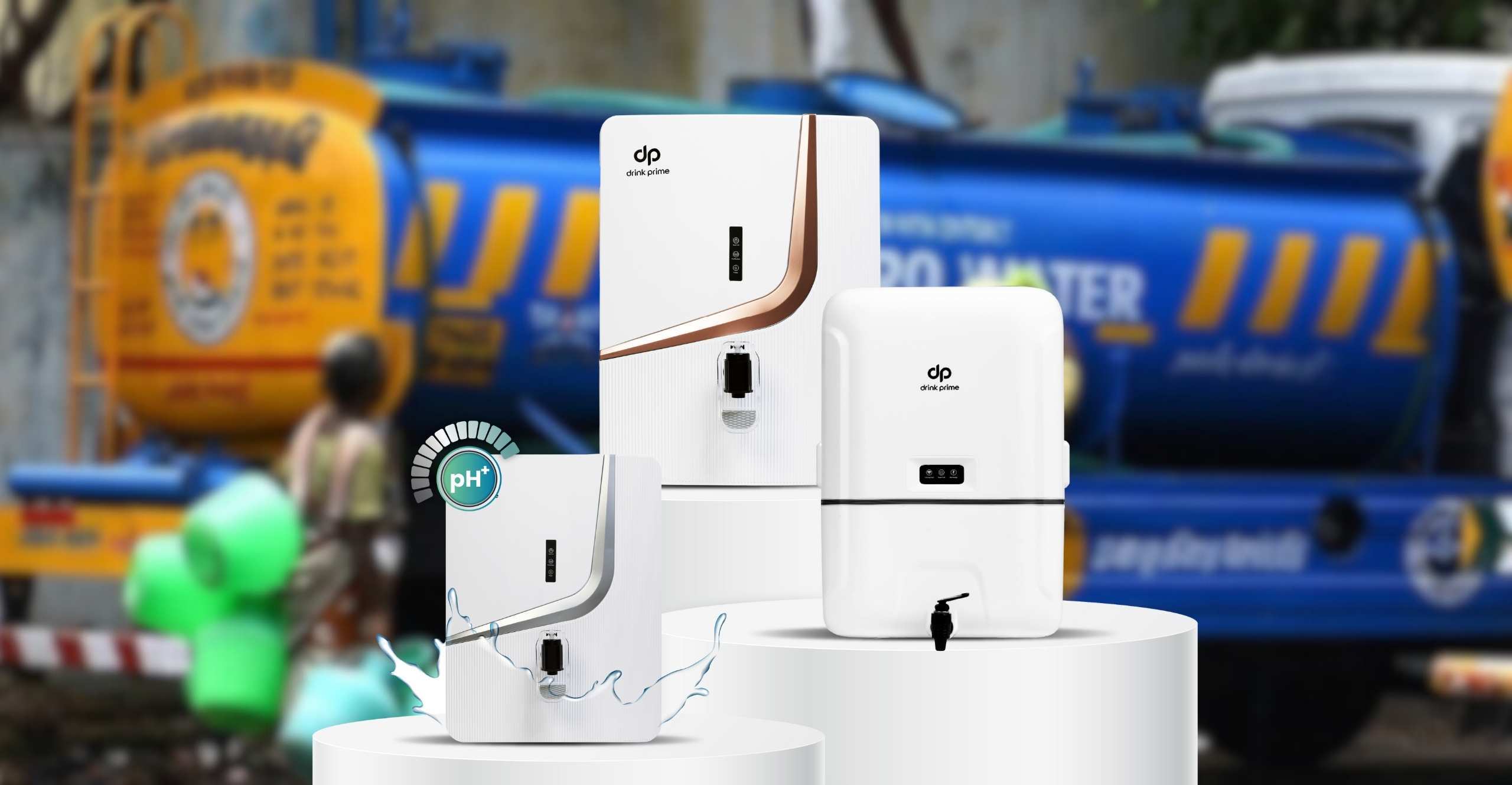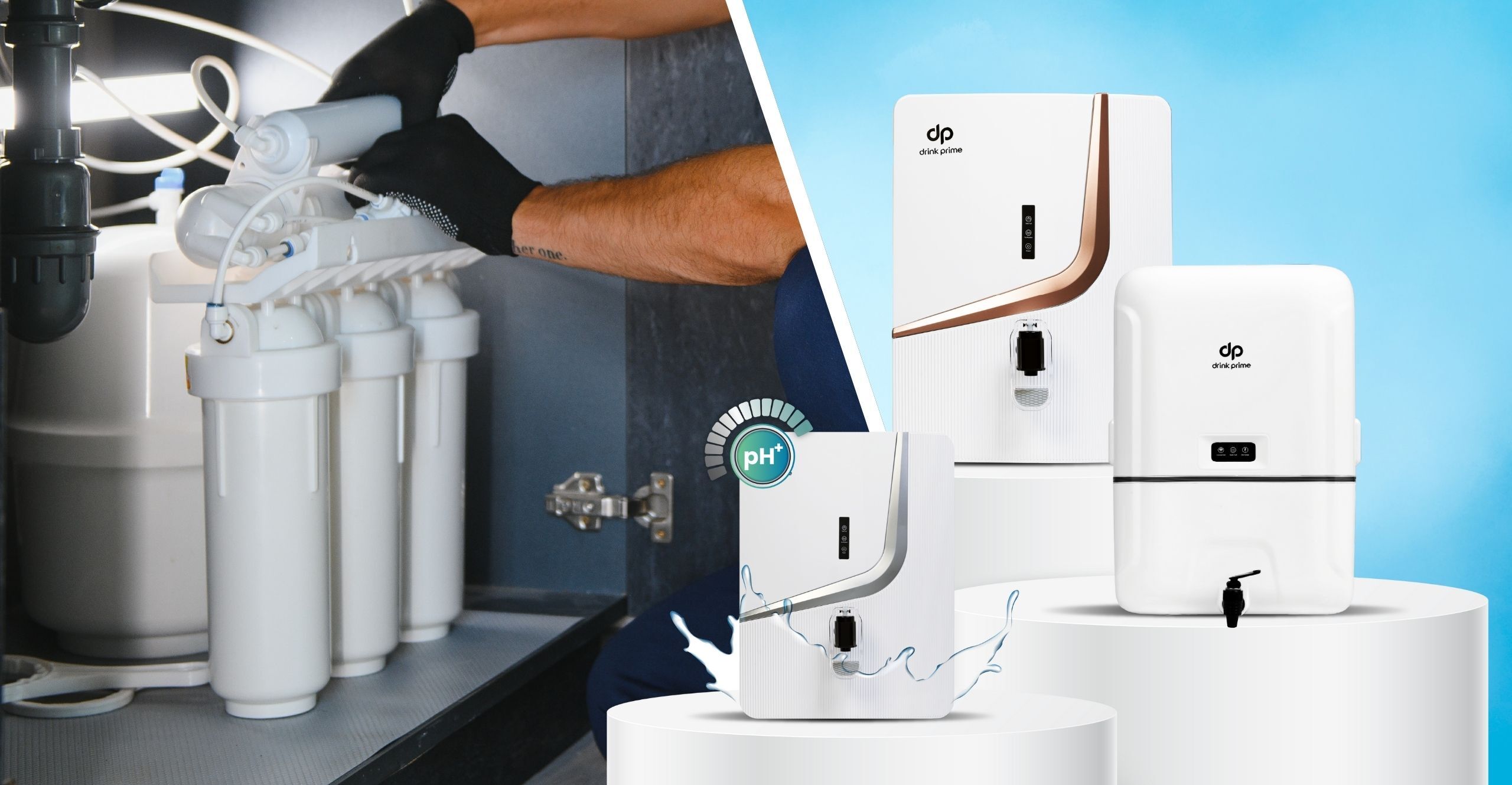Have you ever experienced your skin feeling tighter after a shower, or sometimes when washing dishes it appears cloudy, wondered why? The answer is hard water. Hard water is water that consists of high mineral content and is formed when water percolates via deposits like chalk, gypsum, and limestone. Hard water is not harmful to health, but it can cause several other inconveniences and also damage to appliances.
In this guide, we will understand how to identify hard water, and also we will explore what is the best water purifier for hard water.
Overview of Hard Water and Common Signs
Hard water often contains high levels of dissolved minerals, primarily magnesium and calcium. Such minerals enter the water supply as most of the groundwater passes through limestone, chalk, or any other deposits, and it causes several household and personal care issues. Here are some common signs of hard water:
Chalky or White Residue on Fixture
One of the most common signs of hard water is the buildup of chalky or white residue on showerheads, faucets, and sinks as well. This is effectively caused by mineral deposits that are left behind when water evaporates.
Shampoo and Soap Don’t Lather Much
Another sign of hard water is that when it reacts with soap to form a rich lather, it forms a scummy residue. Moreover, this makes it more difficult to wash hands, clean dishes, and bathe.
Dry Hair and Skin
Additionally, hard water strips off the natural oils, which can leave your skin feeling itchy and dry, which overall makes your hair dull and brittle.
Clothes Feel Stiff and Rough
Another noticeable sign of hard water, when done in a laundry with hard water, the mineral that gets deposited sticks to the fabric and entirely makes the clothes feel stiff and rough. Besides, clothes’ color fades away and turns clothes yellow or gray.
Frequent Plumbing Issues
With hard water, most of the pipes get clogged and it effectively reduces the water pressure. Moreover, using the best filter for hard water helps prevent plumbing problems and buildups.
Spots on Dishes and Glassware
When dishes and glassware are washed with hard water it leaves behind all the mineral deposits that can make glassware look even more dirty even after washing.
How to Fix Hard Water Issues?
Install a Water Softener
A water softener is the most effective way to tackle hard water. Moreover, it works by replacing calcium and magnesium ions with sodium or potassium, while preventing mineral buildup, hence making water softener.
Use Water Conditioner
Water conditioners do not remove all the minerals, but they help prevent scale build-up as well. Such systems are less expensive than water softeners and require less maintenance.
Clean Fixtures and Appliances Regularly
Try to use vinegar or any descaling solution to remove all the mineral buildup from faucets, showerheads, and appliances. Besides, regular cleaning can help to maintain efficiency.
Install a Water Purifier
One of the best ways to tackle hard water is to install the best filter for hard water.
DrinkPrime is an effective solution that completely makes sure that you and your family get clean and safe drinking water. Also, advanced filtration system technology reduces the impact of hard water on your home and health.
Get 7 Days Risk Free Trial
Conclusion
In summary, hard water is not harmful to health, but it can cause several inconveniences in everyday life, from dull hair to dry skin to other issues. It is important to recognize the signs of hard water to address the issue. Additionally, solutions like investing in a high-quality water purifier like DrinkPrime make clean and safe drinking water while effectively reducing the negative effects of hard water on your home and health. Also, by taking the right measures, you can improve the quality of water and boost overall well-being.




